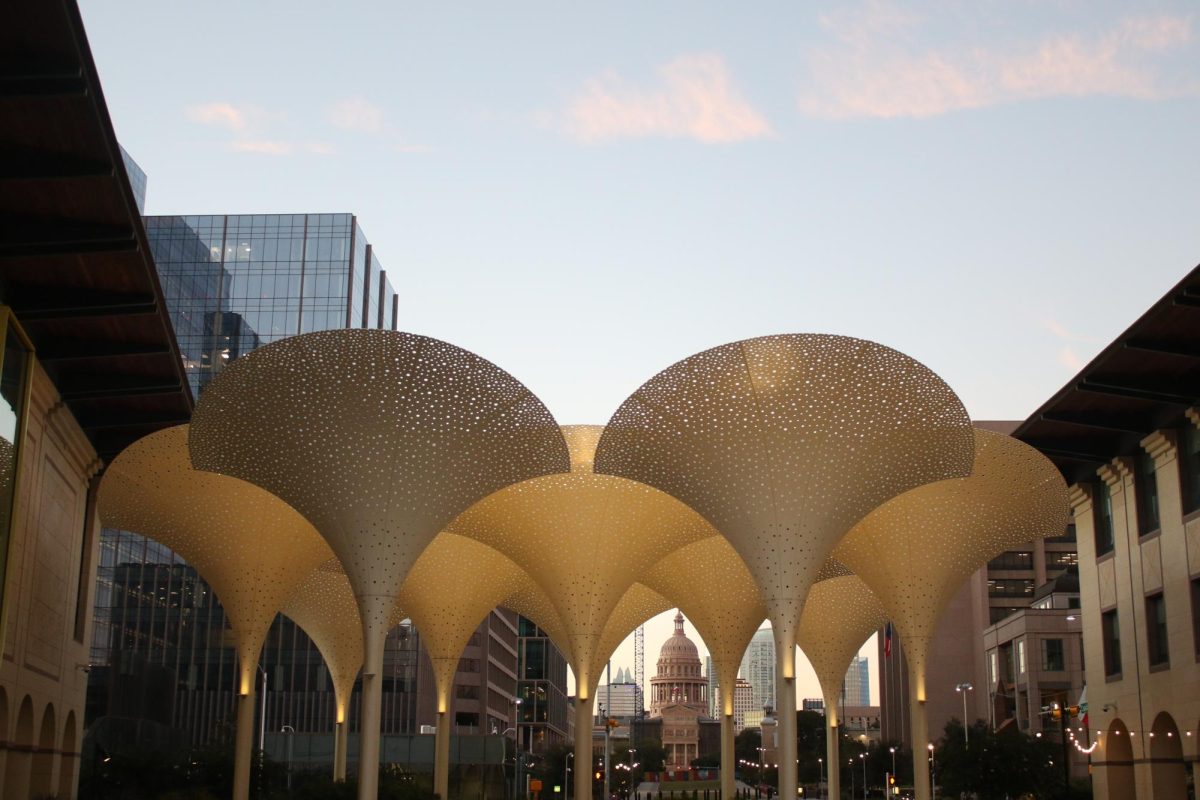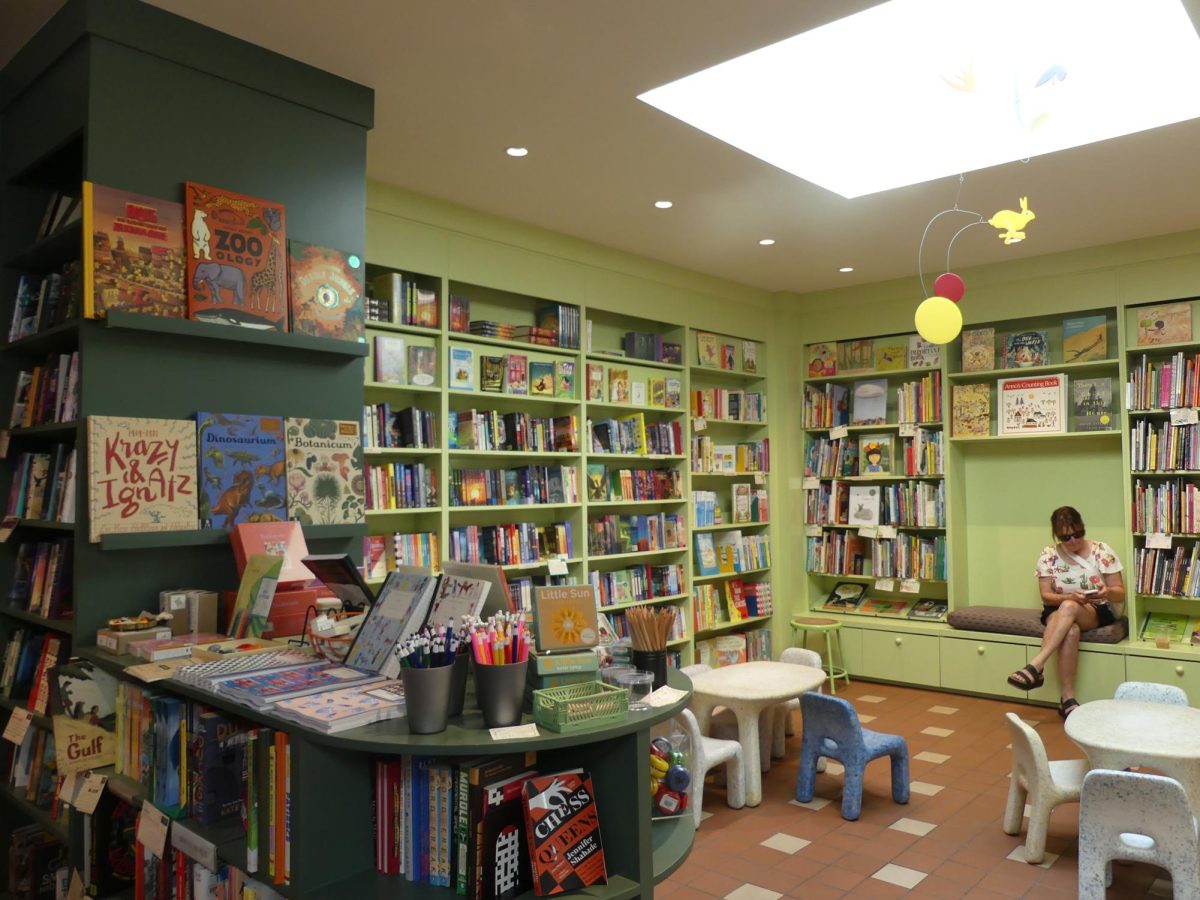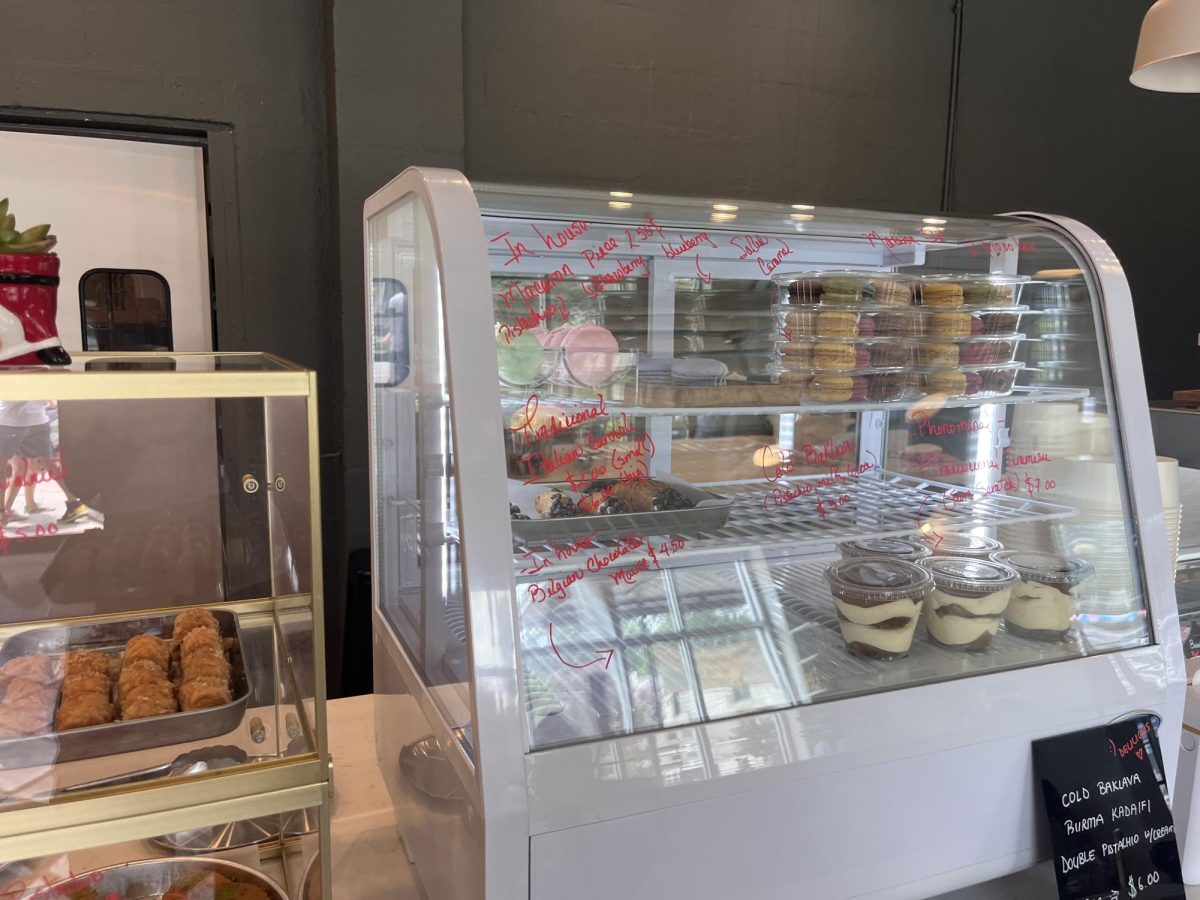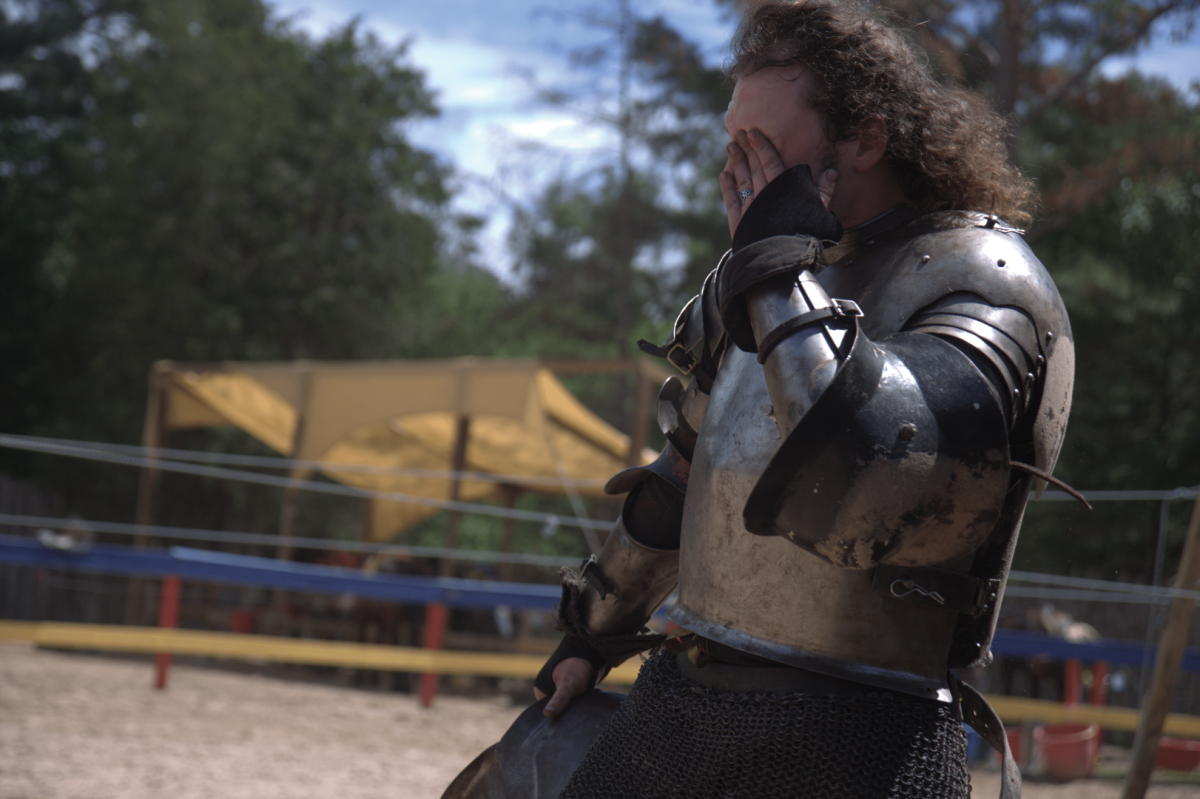Sprachfest
Griffin Beam | Photo Editor

Soon, the aroma of fresh gingerbread will fill the halls of the T-Anex as Sprachfest rolls around again this year. Sprachfest is a regional contest and state-run fair celebrating the spread of German culture and language through competitions in Texas on German art, music, drama pieces, and more.
LASA’s German teacher Cristopher Parks explained how Sprachfest is heavily tied to German culture. Due to the fair’s celebration of German customs, it also serves as an example of how various Western practices have been influenced by conventions found in Germany.

“Sprachfest is a regional competition for South and Central Texas high schools and middle schools,” Park said. “At both competitions, students can compete in dozens of different types of events, highlighting their skills and talent in art, drama, prose, poetry, music, trivia, and various types of written and oral tests. Some of these traditions reach back into early pagan Alpine culture, like the Krampus legend. [They] eventually led to some of the common American holiday traditions like stockings, candy, and coal.”
Sophomore Aditya Ghatty participated in Sprachfest last year and explained how it was a very enjoyable experience for him. He also stated that he was planning on competing in Sprachfest again due to his previous positive experience with it.

“It went well, it was really fun, everyone involved loved it, and it was at a school we hung out at,” Ghatty said. “I liked Sprachfest so much that me and my teammates are going back again this year, and I think everyone who can should go.”
Parks also explained how there are many things associated with Sprachfest beyond its academic competitions. For example, Sprachfest also has a contest based on gingerbread houses that originate from historical traditions and stories in Germany, which Parks explained senior Isaac Rivera was the reigning champion.
“Isaac Rivera has the longest-running reign as a gingerbread ‘Master-Builder’,” Parks said. “Last year he did an entire city-scape made of gingerbread.”
LASA students visit Sprachfest when it occurs in February and get to experience it as a fun and engaging commemoration of German culture and language.
Hanukkah
Jolie Grogan | Photo Editor
Hanukkah, the Jewish festival of lights, is celebrated by millions of people worldwide, including about 5% of Americans. Many Austinites gather to celebrate the rededication of the second temple of Jerusalem, according to AP-NORC. In the Hebrew calendar, Hanukkah starts on the 25th day of the Hebrew month Kislev, which tends to coincide with the month of December.
Jew Crew, a club at LASA, discusses and celebrates Jewish culture. The vice president of the Jew Club, junior Scarlett Neulander, explained Hanukkah’s origins and the meaning behind it.
“Hanukkah is the holiday that celebrates the recovery of Jerusalem and the rededication of the second temple after the Maccabean revolt,” Neulander said. “The Jews only had enough oil to light a lamp for one night, but magically the light lasted and the oil burned for eight days. This is known as the miracle of Hanukkah.”
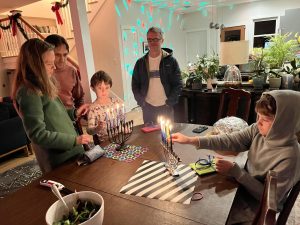
Judaism is one of the oldest monotheistic religions that still exists and is often practiced differently per family. According to Neulander, her family celebrates by eating traditional food and participating in traditions like lighting menorah candles.
“My family celebrates Hanukkah by lighting the candles each night, playing dreidel, eating traditional foods like latkes, and getting doughnuts on the first night,” Neulander said. “We also usually go to a Hanukkah party on one of the last nights to enjoy Hanukkah with our other Jewish friends.”
While there are many ways to celebrate Hanukkah, making and eating food is a widely loved tradition by people such as Jason Hasik, a junior at LASA who also celebrates Hanukkah. The most popular dishes used to celebrate include kugel, latkes, and brisket.
“I celebrate Hanukkah because religion is important in my family and I enjoy seeing my family and friends,” Hasik said. “I love my Mom’s brisket that she makes every year and getting to see family that lives far away from me. I also obviously like receiving presents from my family and friends.”
This year, Hanukkah starts on Thursday, Dec. 7, and ends on Friday, Dec. 15.
Diwali
Avani Ganne | Photo Editor
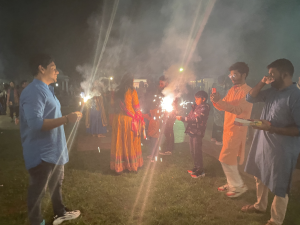
Celebrated every year between October and November, Diwali is a holiday originating from India and is celebrated all over the world. The festival commemorates the return of Prince Rama, a prominent figure in Hindu mythology, to the Kingdom of Ayodhya after his victory over the demon Ravana. In modern times, Diwali is celebrated through many traditions, such as lighting candles and sparklers, eating particular foods like pani puri and mango lassi, and dancing with one’s community.
According to junior Chandana Dubakula, these traditions are what make Diwali a special celebration that everyone can enjoy. From lighting sparklers with her friends to eating special food for the holiday, she says that there is so much to do when celebrating the holiday.
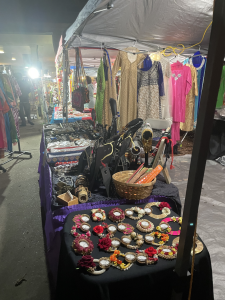
“I absolutely love this holiday because of the festive energy,” Dubakula said. “I usually go to the temple, and there’s always really good food, fun activities, and fireworks. At home, we usually put tons of lights on our porch and I do sparklers with my friends. Not to mention the sweets! Diwali sweets are always the best, and my house smells so good because of whatever my mom is making.”
Similarly to Dubakula, junior Janani Easwar spent the holiday celebrating the festival’s representation of good’s victory over evil with her family and friends. According to Easwar, the holiday’s origins contribute to its uplifting and happy nature.
“Diwali is celebrated symbolically as the triumph of good over evil, using light to signify the dispelling of darkness in a person’s life,” Easwar said. “Because it is recognized as the festival of light and hope, [Diwali] is very uplifting and quite enjoyable. I celebrate Diwali because it is a way for me to connect with my roots and to celebrate together with friends and family.”

Furthermore, Diwali promotes positive values in the lives of those who get to experience it, according to junior Triyatha Jammula. It serves as a reminder of the success of all that is good and encourages everyone to nurture these values in themselves.
“Diwali not only emphasizes the triumph of good over evil but also allows us to embrace togetherness and share love,” Jammula said. “As we light the diya lamps, we illuminate hope and positivity, making Diwali a constant reminder of the power of unity.”


